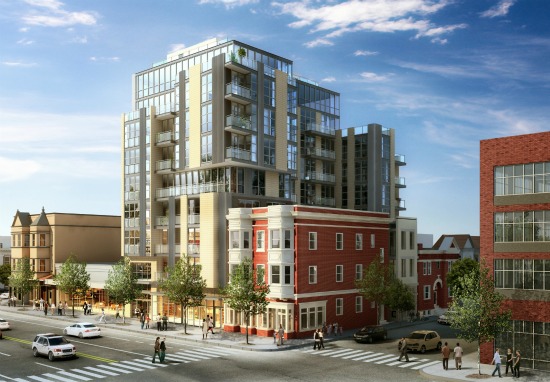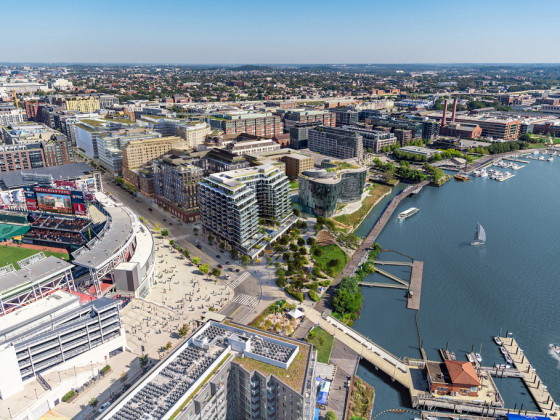What's Hot: Did January Mark The Bottom For The DC-Area Housing Market? | The Roller Coaster Development Scene In Tenleytown and AU Park
 Boldest Development Trend of 2013: Parking Prohibition
Boldest Development Trend of 2013: Parking Prohibition
✉️ Want to forward this article? Click here.

A planned Logan Circle project that would prohibit residents from obtaining parking permits.
In late-May, a planned Logan Circle project asked for a rather bold zoning variance.
The developer wanted the development at 1456 Church Street NW to be able to move forward with no parking spaces, but proposed a counter-measure that would avoid over-burdening the street parking situation in the neighborhood. Tenants would be prohibited from acquiring a residential parking permit (RPP). The RPP prohibition would be written into the lease, and the developers would check with the DMV periodically to make sure none of their tenants have a permit.
Another developer building a project up 14th Street followed suit a few months later with the same proposal and two other DC projects have since tossed out the idea.
Developers going this route are taking the viewpoint that their tenants will be carless folks who use bicycles and public transit to get around and have car2go and Zipcar memberships to use when they need four wheels.
The idea continued to gain steam in June when Councilmember Tommy Wells introduced a bill that would allow a property owner to make a particular property address ineligible for parking permits. This would eliminate the need for developers and building managers to constantly monitor DMV records.
Needless to say, the proposal has its supporters and opponents. A comment in opposition from an article we wrote earlier this year:
“I don’t think people should have to give up this right just so a landlord and other more fortunate landowners can benefit. I’m all for walkable cities, but a long term plan needs to includes all transport options, not favoring certain ones over others.”
And a comment in favor of the plan:
“The market being able to decide in this case makes a lot of sense. Forcing every single new build to provide parking is ridiculous. If I don’t want to pay $30K+ for an underground spot then I shouldn’t be forced to. That’s not for the landlord’s benefit – that’s for my benefit. Cheaper, car-free buildings make plenty of sense and there should be as many as the market demands.”
In the latest wrinkle, Atlantic Cities recently published an article on how the cost of other people’s parking results in rent increases for the folks that don’t need or want parking. The article points to a study which showed how, in Seattle, just such a scenario could be costing renters $246 a month.
There is no doubt that this trend will continue to be proposed and debated in the new year.
Other entries in UrbanTurf’s Best of 2013:
- The Best Listing of 2013: Bauhaus in Brookland
- Best 15-Year Vision: Georgetown 2028
- Best Rumor Heard in 2013: Eataly to Uline
- Best Signs of DC’s Hot Housing Market: Above Asking and Multiple Bids
- Best Alternative to a Studio: DC’s One-Room House
- Best Way to Live and Learn: Buy the Pierce School Lofts
- Best Design of The Year: Montgomery County’s Tallest Residences
See other articles related to: best of 2013, dclofts, parking
This article originally published at https://dc.urbanturf.com/articles/blog/most_hotly_debated_development_trend_parking_prohibition/7938.
Most Popular... This Week • Last 30 Days • Ever

As mortgage rates have more than doubled from their historic lows over the last coupl... read »

The small handful of projects in the pipeline are either moving full steam ahead, get... read »

Lincoln-Westmoreland Housing is moving forward with plans to replace an aging Shaw af... read »

The longtime political strategist and pollster who has advised everyone from Presiden... read »

A report out today finds early signs that the spring could be a busy market.... read »
DC Real Estate Guides
Short guides to navigating the DC-area real estate market
We've collected all our helpful guides for buying, selling and renting in and around Washington, DC in one place. Start browsing below!
First-Timer Primers
Intro guides for first-time home buyers
Unique Spaces
Awesome and unusual real estate from across the DC Metro













